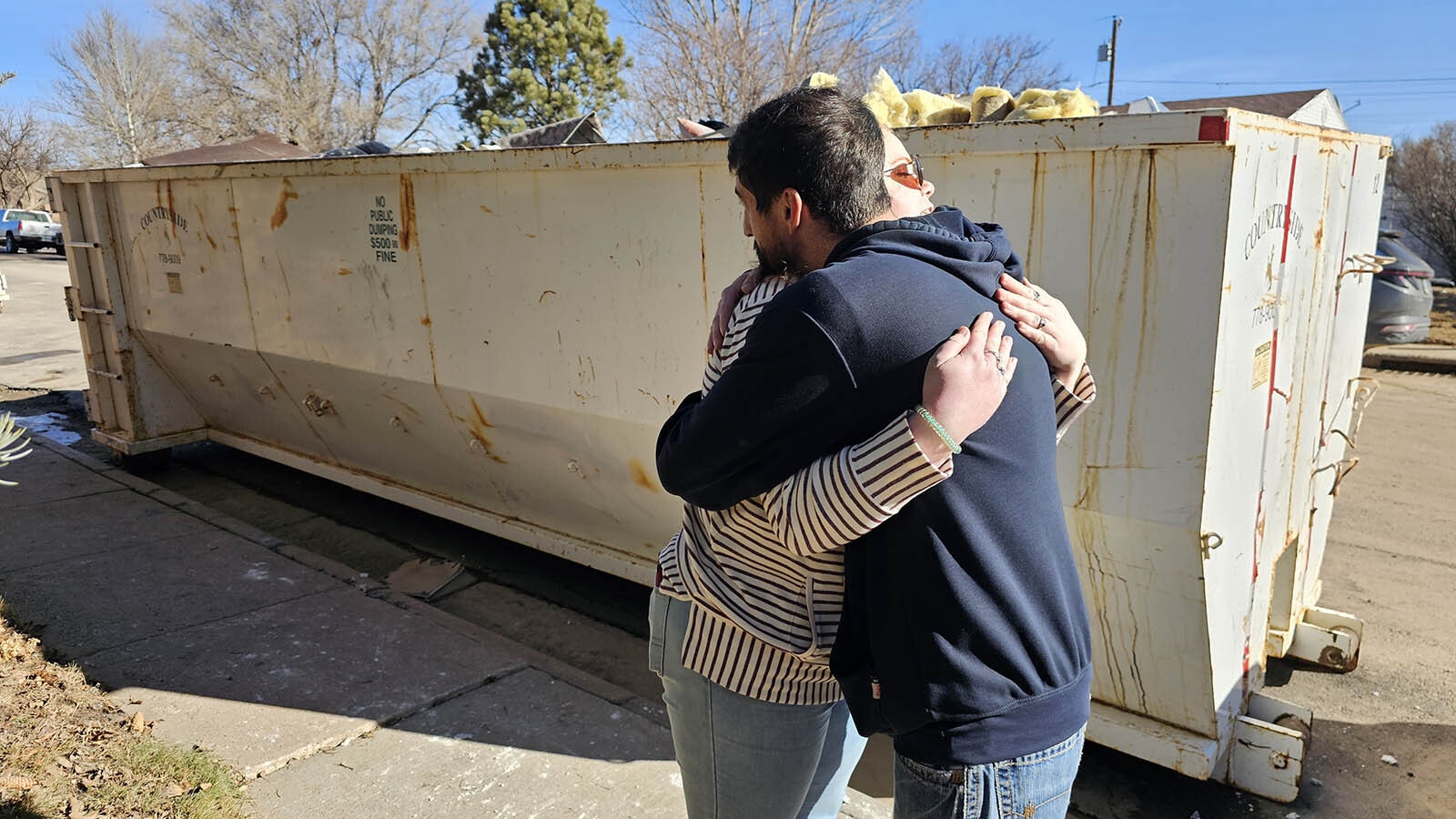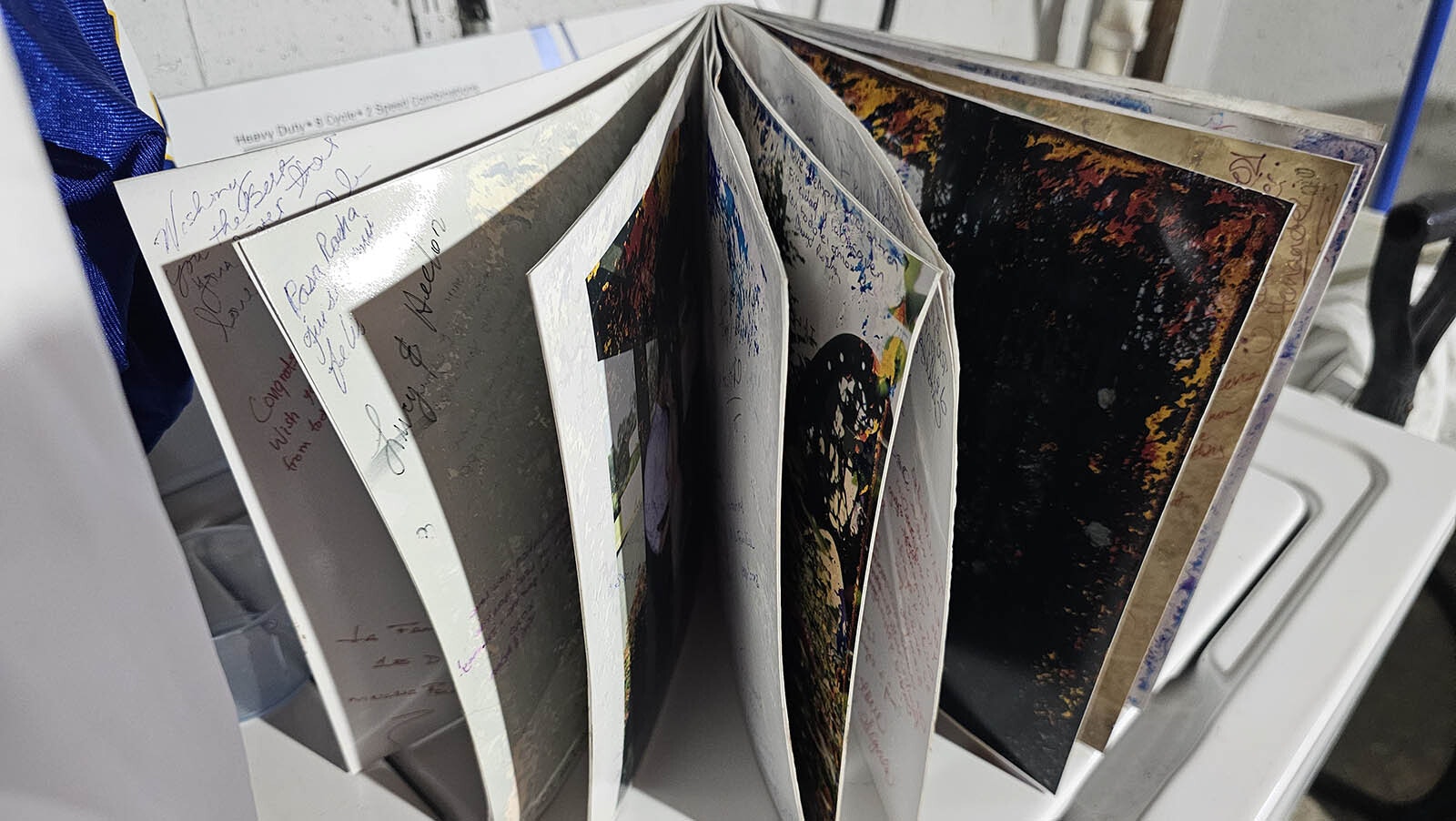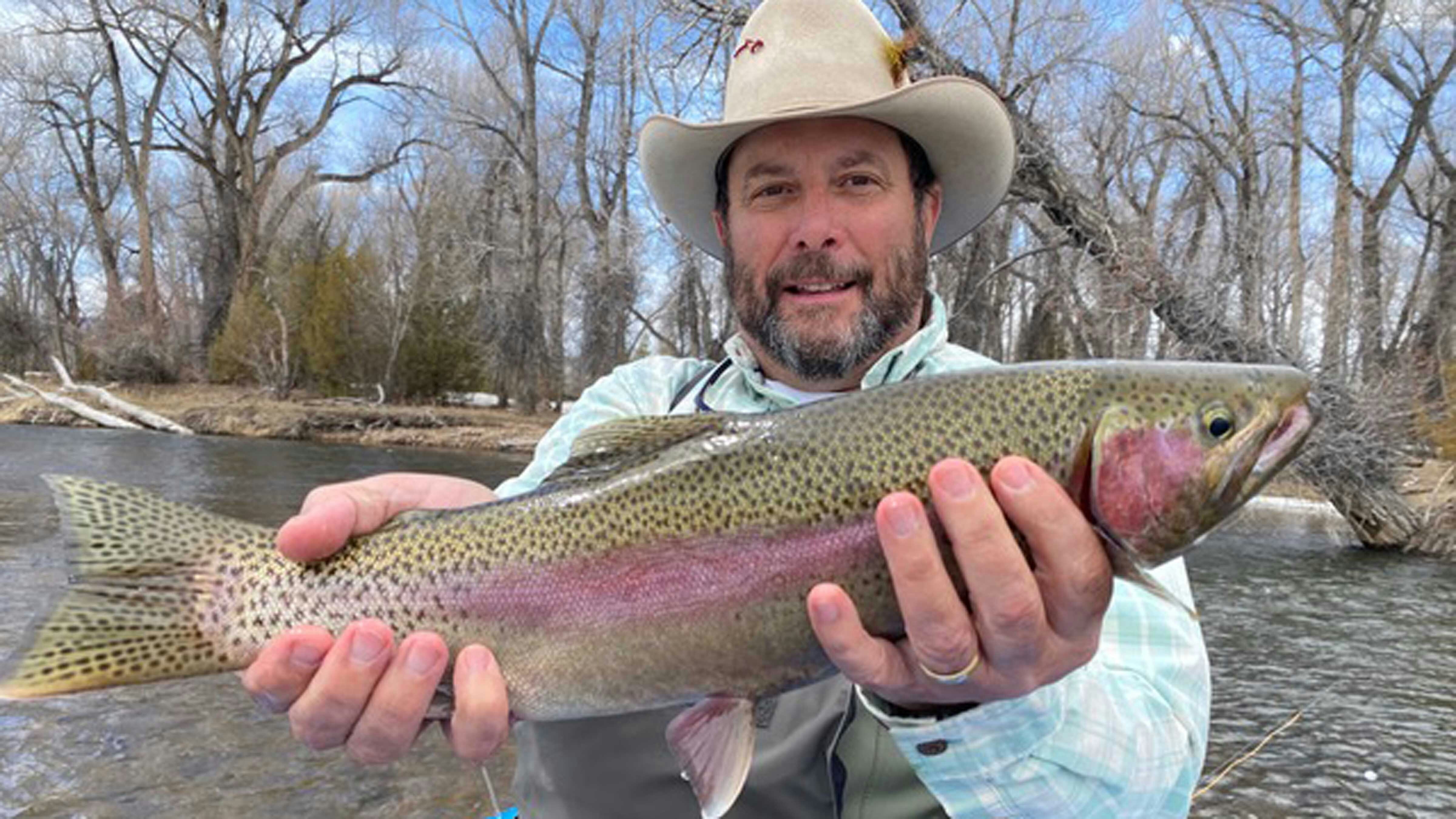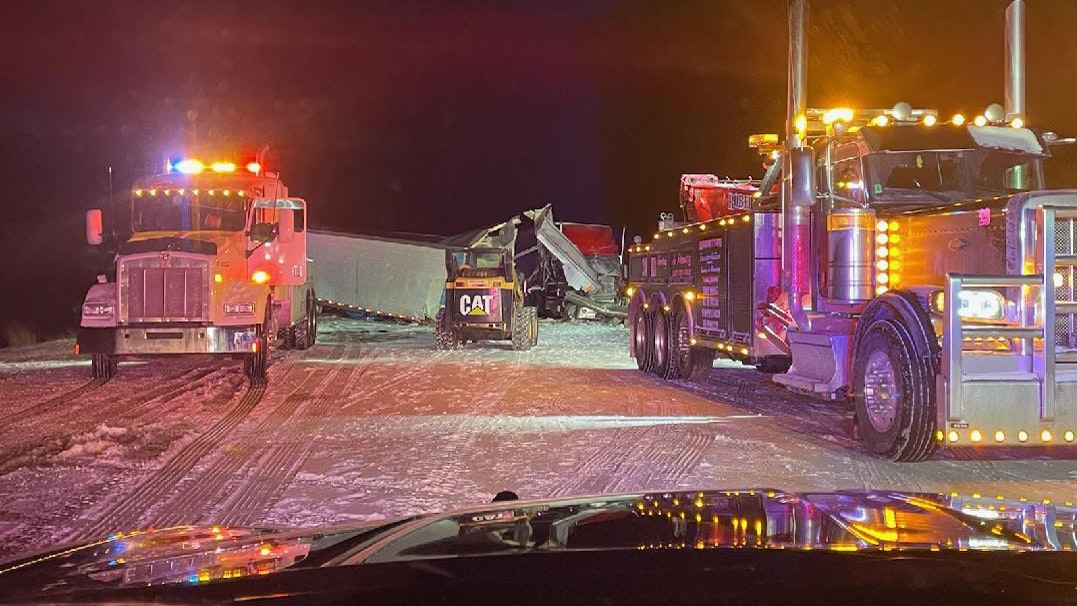Two days after a 12-inch water main break inundated their home with water last week, Roșie Rocha’s oldest son Leonidas Hernandez woke from a nightmare.
“The water, the water,” the boy was saying, Rocha told Cowboy State Daily.
“And then he was saying, ‘My head is spinning,’” she said.
Her child’s nightmare reminded Rocha to be mindful each day of the kind of face she’s putting on for her kids as she and husband Antonio Hernandez wrestle with a real-life nightmare.
How to put a home back together after it’s been flooded with four to five hours worth of rushing water that’s left it turned upside down.
“We’ve lost more than $20,000 worth of stuff,” Rocha told Cowboy State Daily. “I am five months pregnant, so I started accumulating things, I started buying baby clothes, and a lot of that stuff was downstairs. Not all of it. Fortunately, I did have some upstairs. But we lost a crib, a stroller, a bassinet, and we had some baby clothes that I put into a box.”
Her oldest sons’ shoes, meanwhile, were downstairs so they could be washed.
They were among all the lost items after water filled their basement with at least 3 feet of water last week.
“All he has right now are snow boots and a pair of slip-ons,” Rocha said. “And my husband’s clothes and my office, all of that was downstairs.”
The children, meanwhile, have been watching a lot more television than usual of late since most of their toys were also downstairs in the home theater/sleep-over room.
Rocha used to tell them to turn off the television and go play with their toys instead, to get them out from in front of the television.
But right now, there are no toys, so she is silent about the television.

PTSD Harder On Children
Rocha’s son isn’t the only young Cheyenne resident wrestling with the aftermath of the Cahill Park flooding that has caused between $30,000 to $80,000 worth of damage for some homeowners in the Darnell Place neighborhood.
Rocha’s neighbor, Phylicia Peterson, told Cowboy State Daily that her son has been struggling as well.
“I walked in there (Tuesday), and our kitchen floor has peeled up at the edges and it just smells musty and like mildew,” Peterson said. “And we’ve decided we’re not going to let our son back into the home until it’s put back together. We don’t want him to see it like that.”
A Red Cross worker, meanwhile, suggested Peterson look for a counselor to help the family with the trauma of the situation.
“I was having nightmares, waking up with these horrible dreams where like my sister was down there, because that was her living space when she’s here, or my son,” Peterson said. “So, I’ve been waking up with nightmares, and they told me, you know, PTSD happens with this stuff. And they said it’s harder for kids, because they don’t quite wrap their heads around it, so they encouraged me to get him in some counseling.”
Don’t Mind The Mess
Rocha, who lives next door to Peterson, immediately apologizes to guests when they come to visit for the heaps of clothing piled on her living room couch.
It’s really the only space available for the clothes right now since their basement was ruined. The clothes are all on hangars — rescued in the nick of time, as water in their home began to rise.
The family’s washer and dryer were among things in the basement that were destroyed, along with their hot water heater.
The family was able to replace the appliances Monday, but Rocha has since learned that she should not try to save any clothing items soaked with floodwaters. Although the water that invaded her home came from a city pipe, so is not technically “floodwater,” it still ran overland for quite a distance, carrying with it mold, feces, pesticides and many other contaminants along the way, similar to what floodwaters do, with all the same inherent risks.
Rocha also apologizes quickly for all the dishes piling up on her kitchen counters. There hasn’t been hot water until very recently to wash them clean.
“Last night was shower day,” Rocha said. “So, getting the kids showered up and everything — and we didn’t have any hot water or anything like that, so I had to boil water for them to shower, to bathe.”
Rocha made it as fun for the children as she could by telling them that’s how she herself once bathed when she was a girl growing up in Mexico.
“So, they’re like, ‘Oh, hey, we’re in Mexico,’” she said.
They’ve never been to Mexico, so that made it fun for the children, and for Rocha too, at least momentarily.
But constantly keeping a sunny side up attitude for her children is a struggle given what the family is facing.
Friends Working Around The Clock
Like the other families whose basements were flooded, repair estimates for the Rochas range from $30,000 on up to as much as $80,000 for the damage caused by all of the standing water.
Rocha and her husband, like most other middle-class families, are living paycheck to paycheck. They cannot afford that kind of money up front, on top of everything else.
So, they have been relying on knowledgeable friends who’ve volunteered to help them wrestle with cleanup and repairs.
“My husband is from the military and his military friends have been coming day and night to help us take care of all the water that was in here,” Rocha said. “They’ve been coming early in the morning and leaving at like 9 o’clock at night.”
They used construction sump pumps to take out all the water. Then they stripped out all of the flooring, cut out all of the wet sheetrock, as well as anything else contaminated by floodwater, discarding it.
The stripping work included the couple’s recently renovated bathroom, along with its toilet and vanity, and the ruined hot water heater, which no longer worked.
Rocha’s coworkers, meanwhile, have been helping the family as well, and a family member has started a GoFundMe to help with replacement costs of flooring, sheetrock and other expenses, as well as clothing and other items they’ve lost as a result of the city’s water main break.
The Cheyenne community, meanwhile, has been rallying to help the families as well. And there’s a GoFundMe for the Peterson family.
“We’ve just been hanging in there,” Rocha said. “We haven’t been able to save many things because we’re kind of worried that the water is contaminated.”
Turn Off Everything
Like many of the other families living along Darnell Place, the Rocha-Hernandez family’s first indication anything was wrong was waking up to the sound of broken glass sometime between the hours of 1 to 2 a.m. Jan. 23.
“Our egress window broke,” Rocha told Cowboy State Daily. “So, the water was just flooding in from there.”
Rocha’s first thought was to call 911 so authorities would know something was going on and could warn others in the neighborhood. But, when she called, they already knew about the flooding. She was told someone else had already reported it at least a half hour before.
“Yet no one had come to knock on our doors (or called) to let us know anything, to warn us about anything,” she said.
When she looked outside sometime around 2 a.m., water seemed to still be flowing at full force. She could see it was coming closer and closer to homes in the neighborhood.
“I couldn’t go outside because I can’t walk in all that water,” Rocha said.
So, she started texting and calling her neighbors to find out what they knew, and to make sure they were OK and were aware of what was happening.
“Turn off everything,” she told Peterson when she finally got through to her. “Turn off your electricity, turn off your heat, whatever you can. And be careful.”
Rocha also called Cheyenne firefighters, telling them her address and asking for any new information. A couple of firefighters eventually came by to check on the family. They told her an ambulance had called the water main break in.
Four Hours Of Water And Unanswered Questions
A couple of hours later, Rocha called 911 again, concerned because the water showed no signs of letting up. It was just getting higher and higher in the neighborhood.
First, she was scolded for calling the emergency line, Rocha said.
“But when I called the nonemergency line, no one picked up,” she said. “So, I called the emergency line again anyway, and I asked them when is the water getting turned off? They didn’t even know what to tell me.”
The water continued for another four to five hours, Rocha said, and so far there’s still been no explanation why it took so long to turn the water off.
“I tried to call the mayor,” Rocha said. “They didn’t want to talk to me. His assistant said that he wouldn’t talk to us, and that we have to talk to BOPU.”
From the Board of Public Utilities, she learned only that the family would have to file an insurance claim with the board’s insurer, WARM.
There were no answers there on why the water ran for so long.
“I also asked him if there’s any resources to help us before all (these repairs),” Rocha said. “And he said no. He’s like, ‘Just try to take the water out.’ And I’m like, ‘What about people who don’t have the funds to even do that, don’t have people to even do that. How are they going to do it?’ And they’re just like, ‘We can’t do anything about that.’”
Rocha has since been told that there have previously been between one and five other incidents in the city similar to the Cahill Park area flooding.
That boggled Rocha’s mind.
“I’m like if we’re one of five? You already went through this? How do you not know what to shut off?” Rocha said. “Shouldn’t there be like training for that?”
Those are just a few of the many questions Rocha and other families of Darnell Place continue to ask in the aftermath of what the city initially described as a “small” leak in the Cahill Park area.
Rocha, like Peterson, is critical of the city’s initial characterization of the water main break.
“This was not a leak, it was a burst,” Rocha said. “This is like a hurricane-level disaster. That’s what one of the firefighters or emergency workers told my neighbor. He told her this is like what a hurricane looks like. But according to the city, whoever put that out, this is a ‘small’ leak. A four-hour, five-hour ‘small’ leak.”
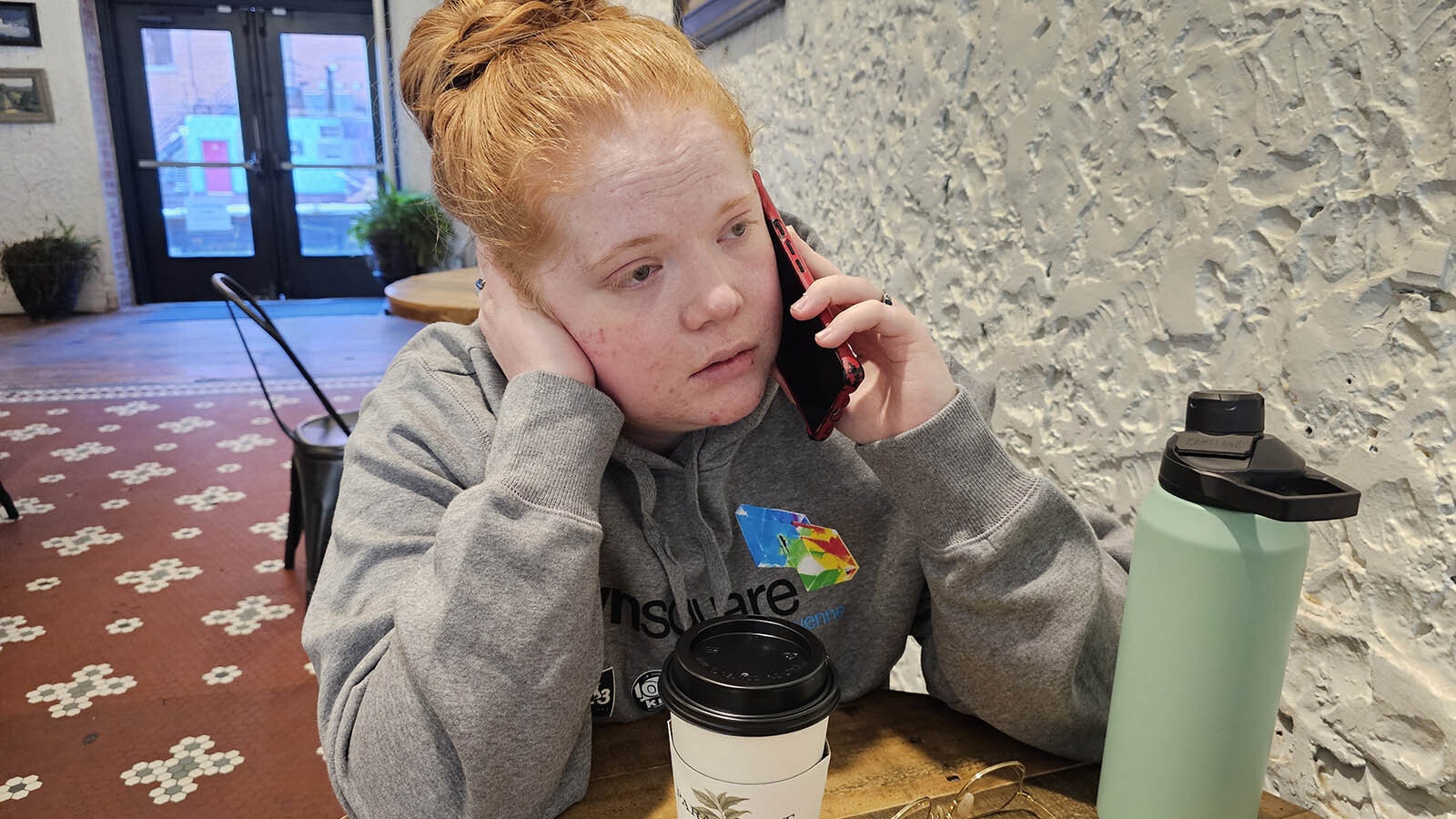
Renée Jean can be reached at renee@cowboystatedaily.com.

